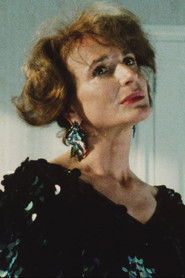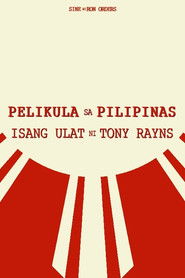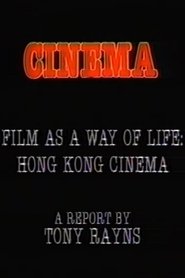Simon Hartog
ProducerDirectorWriter
-
Birthday
-
Zodiac Sign
-
Genres
0
Total Films
Also known as (female)
Place of Birth
-
Birthday
-
Zodiac Sign
-
Genres
0
Total Films
-
Also Known As (female)
-
Place of Birth
-
Birthday
-
Zodiac Sign
-
Genres
0
Total Films
Also known as (female)
Place of Birth
-
Birthday
-
Zodiac Sign
-
Genres
0
Total Films
-
Also Known As (female)
-
Place of Birth
actor
0 Works
producer
6 Works
director
12 Works
writer
1 Works
other
2 Works

Further and Particular
An old man remembers the troubled relationship he had with his mother, the erotic games, and the phantasms in which she managed to attract him. The main line gives but a small idea of the film, of its erotic style, its choreographic dimension, its strange fragmentation. The film drifts along an ever-renewed invention, intertwining lavish dances, mask games, musical comedy, parodies, permanent repression of the body offering itself as an object of desire to the viewer who is literally seduced.’Year:
1988

Visions Cinema: Film in the Philippines - A Report by Tony Rayns
Film critic Tony Rayns interviews Lino Brocka and other prominent Filipino filmmakers.Year:
1983

Visions Cinema: Cinema in China - An Account by Tony Rayns
History of filmmaking in China from its beginnings in the 1920s to 1982, featuring Shanghai cinema of 1930s; the progressive filmmakers; the organisation of filmmaking under the post-war communist government; the impact of the Cultural Revolution; the work of Xie Jin.Year:
1983

Visions Cinema: Film as a Way of Life: Hong Kong Cinema - A Report by Tony Rayns
Examines the early 1980s Hong Kong filmmaking community. Tony Rayns interviews some of the new generation of filmmakers and figures from the wider film culture.Year:
1983

Scénario du film Passion
Godard constructs a lyrical study of the cinematic and creative process by deconstructing the story of his 1982 film Passion. “I didn’t want to write the script,” he states, “I wanted to see it.” Positioning himself in a video editing suite in front of a white film screen that evokes for him the “famous blank page of Mallarmé,” Godard uses video as a sketchbook with which to reconceive the film. The result is a philosophical, often humorous rumination on the desire and labor that inform the conceptual and image making process of the cinema.Year:
1982
Give Us This Day
A reconstruction of the life of Robert Noonan, author of "The Ragged Trousered Philanthropists", covering the nine years he spent in Hastings while he wrote the book, based on the fragments known of his life, his writing and the political events of the time. It shows the conditions suffered by the working class, and shows how the book grew out of a commitment to socialism which the prevailing conditions of unemployment and depression prevented him from putting into practice, particularly in his attempts to encourage his colleagues to join a union.Year:
1982